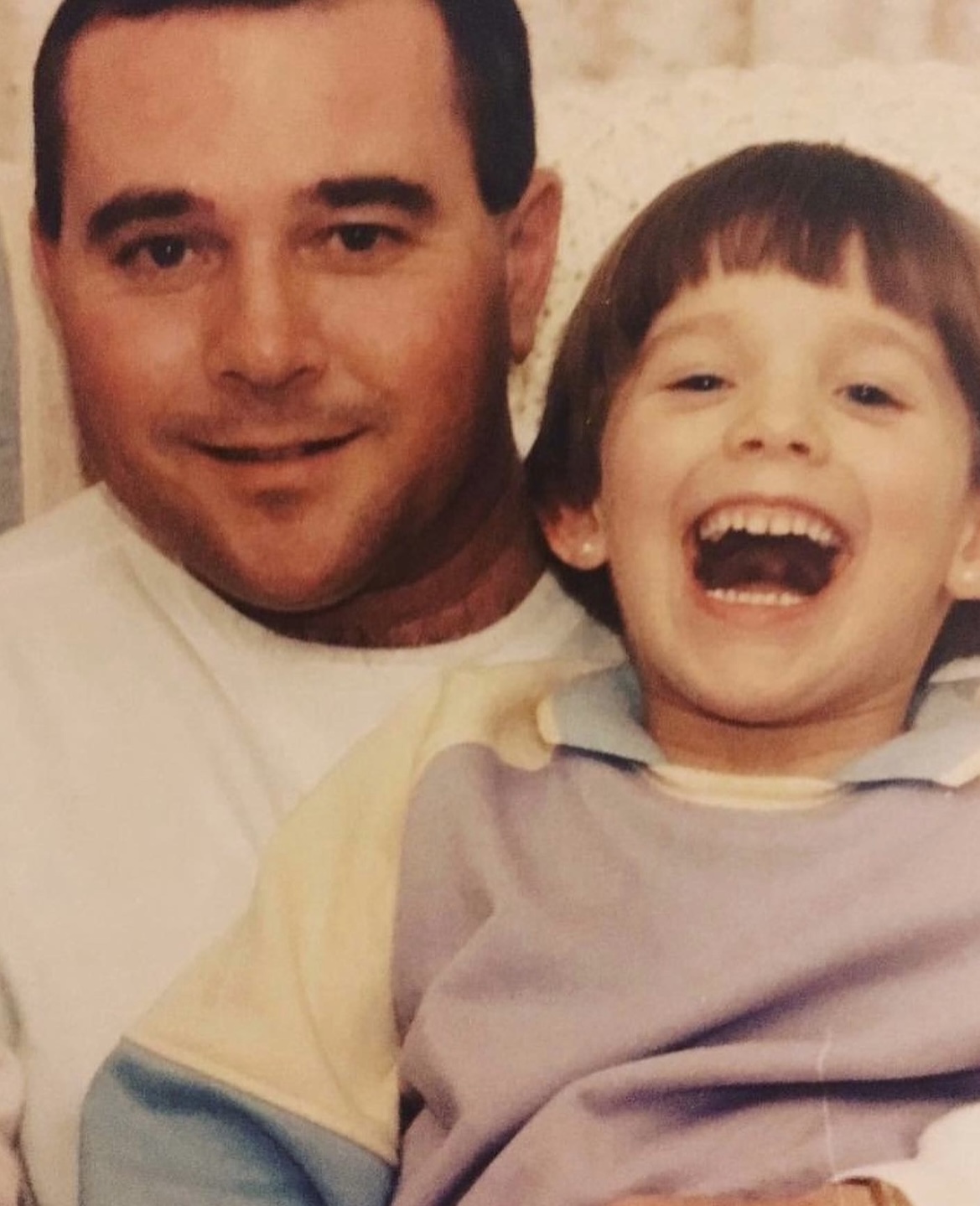I’ve been working professionally as a sober coach since 2019.
I arrived at this work after struggling with a severe alcohol addiction that lasted for more than 15 years. I also grew up in a home where my dad struggled with his drinking, an issue that tragically cut his life short in 2014.
His untimely death was the catalyst that ended up prompting me to look at the role alcohol played in my life and ultimately led me to getting sober in 2016. Because of my lived and familial experiences with addiction, the work I do is deeply personal and immensely meaningful to me. I feel tremendously honored and privileged that I now get to support other people in getting sober and changing their lives for the better.
I often reference my dad’s addiction and passing in relation to my own story of addiction and sobriety, but I don’t often speak about what it was like growing up in a home where addiction was present and the toll that took on me well before my own struggles with alcohol developed. Living with someone in active addiction presents a variety of challenges and greatly impacts relationships, stress levels and emotional well-being, and one’s capacity to emotionally regulate and more. This is especially true if you are a child growing up with a parent in addiction; it’s a fraught dynamic where this person whom you love and you believe will keep you safe is also wildly unpredictable, behaves poorly while under the influence, is inconsistent, and ultimately, unsafe.
Knowing what I know now about addiction, I often wonder what life would have looked like for me if I had better language, more judgment-free care and support, a greater understanding of addiction, and a community of folks who were also dealing with what I was. I also wonder if having this kind of support and community would have impacted the generational trajectory of the addiction in my family. I know my entire family would have benefitted from having support, tools, and community when it came to better understanding the complexities of addiction. This would have benefitted us directly and as individuals as well as a family unit and how we engaged with my dad. Everyone would have been and done better.
Despite the passing of time, and while there are certainly more options available now, the programs available to support folks with loved ones dealing with addiction or substance use issues remain woefully limited. The most commonly known and referenced program is Al-Anon, an AA offshoot for friends and family members of those struggling with addiction. While this option is free and plentiful, it’s not necessarily a great fit for everyone. It certainly wasn’t for me.
I found the religious undertones off-putting and found that meetings left me feeling worse, not better, likely due to the unfettered and unsupported emotional dumping that takes place in these spaces without any “cross-talk,” support, or guidance offered. As far as free, peer/mutual support options go, it’s accessible and barrier-free, which is great. But I personally found myself wanting more in terms of support, care, (evidence-based) tools, and connections, plus not leaving meetings in an activated state, which would have been helpful to my nervous system.
Outside of Al-Anon, many of the programs and support options available for family members are often offered through treatment centers, which means that family members and partners/spouses (but rarely friends) are only able to access support if their loved one is enrolled in a treatment programs, many of which are wildly inaccessible and cost-prohibitive, ranging from a few thousand dollars a month to close to $100,000 a month. The reality is that most people struggling with substance use issues do not seek or access treatment, which effectively renders their loved ones without support as well.
A huge part of my work and mission is to not only challenge and change normative alcohol culture but to also change how we talk about, think about, engage with, and heal addiction. There continues to be so much misinformation, stigma, and shame when it comes to how we think about addiction and those dealing with it, and this has to change. Shame, judgment, and misinformation will never be the way forward toward collective healing and growth; we need new approaches.
Inspired by my mission, the clear and evident need for more options and my own experiences in loving someone who struggled with addiction, the Compassionate Kin Collective was born. The Compassionate Kin Collective is a support group designed to provide care for folks who have loved ones struggling with addiction/substance use issues. This model of support provides weekly group calls where members can share, witness, support, and encourage one another while being supported by me, a professional sober coach, who also offers tools, care, and support in a safe and brave container. Weekly support calls are offered in eight to nine week increments, which allows those who registered for the calls the chance to get to know each other and build connections with one another. Joining the Compassionate Kin Collective also includes lifetime access to a private Facebook community, which further enables conversation, connection, community building, support, resource sharing, and care.
Based on my extensive knowledge of addiction, I am truly excited to be able to provide this offering and support option for folks who have loved ones struggling with addiction. I take a holistic approach in my work, and this feels like a compliment to that approach as it supports the shifting of how we engage with, understand, and heal addiction. Providing support and care to the group of people who pour so much into supporting their loved ones is so vital. It also serves as an opportunity to educate and reduce shame and stigma while also providing members with evidence-based tools ways they can support themselves with self-care and boundaries and so much more. The impact of addiction and substance use issues is rarely contained and more often than not bleeds into and onto relationships with loved ones, which means loved ones need and must be included in and provided with care of their own.
When everyone is supported and cared for, we all do better.
If you have a loved one dealing with addiction or substance use issues, please reach out. You are not alone, and you don’t have to carry the weight of this experience by yourself.
~
Please consider Boosting our authors’ articles in their first week to help them win Elephant’s Ecosystem so they can get paid and write more.












Read 17 comments and reply